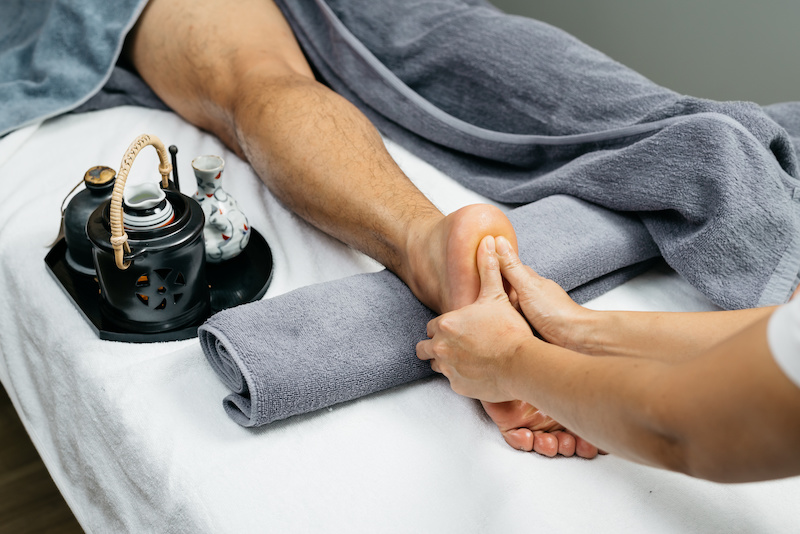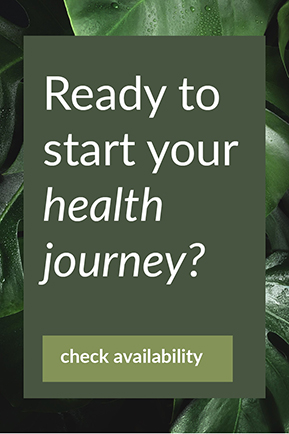My blog today is less technical compared to what I normally provide my readers and more of a thought piece as to what I have been experiencing in clinic as I work with clients over January and February of 2023.
The concerning trend is the number of individuals I am supporting who are starting the year already feeling burnt out and fatigued. How can that be? Normally, I see this trend starting in October. Well, I definitely have some thoughts on this to share.
One would expect that after a long Christmas break which occurs for many people in Australia, that people would greet the new year feeling restored, motivation levels replenished with a positive attitude. This is not what I am finding.
Now one might say that as a naturopath, I am not going to have people come to see me who are feeling restored, motivated and energetic and that is true. However, what I am experiencing is a huge increase in the number of people booking naturopathic consultations who are completely exhausted weeks into the new year.
I have a great educational blog on dealing with Burn out that of course will be helpful for most sufferers and discusses impact of lack of sleep, stress, an unhealthy diet and more – READ HERE.
So, we have had several years now where we dealt with covid and all that came with it, now it is inflation, less people to fill important jobs and rising interest rates as we see the world in chaos with war and natural disasters. Christmas holidays are often full of activity, catching up with family, getting on long flights and for many amongst you, whilst you had a break from work, the time you had off was a far cry from being a restorative holiday where you jumped into 2023 fully energized with a skip in your step.
It is my assessment that many of us are absolutely exhausted from the last three years or so and more is needed to restore oneself back to a healthy state of motivation, good mood and energy.
Strategies that may have worked in the past probably need a re vamp.

In high demand people
So many of us I put in the category of being “in high demand” people and I know from clinical experience that this has more far reaching impacts than you may think on your health.
What does “in high demand” really mean? I am referring to those of us who in our 24/7 society are juggling excessive amounts of daily responsibilities with little time left in the day to rest, relax, wind down and simply be still.
Does this sound like you? Maybe you are what I term a “Superwoman”, juggling career, running busy households, trying to fit in daily exercise, dutifully visiting parents and friends on weekends, cooking after work each day, nurturing your children, partners or fur babies whilst having minimal down-time for yourself?
Maybe you are a mum at home with young children who require your undivided attention day in day out with no time for your own needs? In my prior life where I advised senior women on important career decisions, it was abundantly clear that one of the most difficult jobs for them was being a stay-at-home mother with many describing their “work job” as much easier and much more appreciated!
Maybe you are a father supporting your family in whatever way you can during challenging times, maybe you are in a constant state of worry about job stability, are building a new business or maybe you live on your own with no support, building your career and relying on yourself to make ends meet.
Whatever type of “in high demand” person you are, functioning in this way is stress as far as the biochemistry of your body is concerned.
Many of you may say “But I don’t feel stressed” or “this is my normal and has been for many years”.
But you see, what the body sees as stress may in fact surprise you. Simply being in a constant “state of go” is a signal that your body automatically reacts to.
The body senses this “go state” as stress, just as if you were running from a swerving car, swimming from a shark or protecting your child from danger and it responds by producing chemicals such as adrenaline and cortisol to “fight or flight” this perceived threat. From a biochemistry point of view, your body does not know the difference between the swerving car or you being in your natural, every day “go state”. It is one in the same as far as your body is concerned.
In short bursts, stress acts to sharpen your focus and give you the extra strength and endurance needed to face an immediate issue or danger head on. But when that threat is gone this reaction shuts down and normality returns.
The problem is that in modern society this cortisol and adrenaline production never turns off because your “go state” never turns off. This leads to consistently elevated levels of these chemicals in your body and these chemicals do a lot of things. Let me list a few:
• Weight gain: high cortisol tells your body to release sugar into your blood stream for your muscles to have the energy to “run from the threat”, but you are not running anywhere so this excess sugar sits in your blood. Because excess sugar in the blood is dangerous, your body quickly stores this sugar as fat. And it is mostly around the abdominal area too! In addition, cortisol is a chemical that increases your appetite meaning you crave more carbs & sugar.
• Reduced function of important body processes: Whilst cortisol signals your body to increase muscle strength and blood sugar levels to run from that swerving car, it actually needs to shut down or inhibit other functions to do this. Whilst facing this threat the body rightly determines that certain processes are less important. Unfortunately, this means reduced digestion, immune strength and reproductive functions. This is why being in the “go state” constantly will give rise to digestive issues, increased colds and flu and problems with fertility.
• Reduced thyroid function: stress hormones reduce the level of thyroid hormones in your body. This can lead to weight gain, fatigue, hormone related issues and infertility to name a few.
• Anxiety & depression: cortisol is a very greedy chemical in your body, and it uses up a lot of nutrients that are also required to make “feel good” hormones and neurotransmitters. There is simply not enough of these nutrients to go around when cortisol is being made by the body at such high levels and mood disorders can appear.
• High blood pressure: to run quickly from that swerving car for example, your body needs to be fast and strong immediately. Again, cortisol and adrenaline come to the party and activate physiological changes to push blood to your muscles, heart and vital organs. Your blood vessels quickly tighten and your blood pressure increases so that blood can get to these places quickly. Being in a constant “go state” means that this is happening to you all of the time.
It is therefore incredibly important not to underestimate the powerful impact that stress may be having on your mental and physical well-being. Daily rituals to switch off this “go state” is important for your happiness and future. Daily moderate and enjoyable exercise, sunshine, getting into a good sleep routine, breathing exercises, a warm bath and a nutritious diet are some ideas that you could consider.
But it needs to be more than daily rituals especially if you have already reached a position of “burn out”. Reviewing all home tasks, planning restoration holidays and hand balling tasks where possible is critical so that you can have an “alt control delete” and reboot your computer.

High performance self-care strategies
I made this term up as I see so many successful people, performing in their jobs, gym sessions each week, performing in their finances, performing in their studies, looking after everyone else however self-care and restoration strategies go by the way-side. It is mostly because self-care is never really put on the list of performance KPI’s or in business plans and I am here to say that it damn well should be.
Burn out is very dangerous. It leads to depression, anxiety and a body that can start to break down and get ill.
Preventing it by prioritizing self-care is critical. So, what are some high-performance self-care strategies I recommend:
- A complete overhaul of activities at home including cleaning, school pick up, who cooks dinner when, grocery shopping. Do you and your partner do some tasks together? Can they be separated so you get more you time? Can you get food delivered? Can meal preparation be allocated amongst people in the house? Is it possible for a grandparent or someone else to drop kids off to school? Can you afford a cleaner? Can you work one day from home or can you reduce your hours or buy more leave from your employer or allocate more time if self-employed? Look closely at what is not negotiable here and what actually can be done to release time for self and give you less to do.
- 10-day relaxing holiday every year by yourself, with partner, close friend or immediate family; caveat is that it should be taken as a preventative and not once you have already reached burn out. Now, these types of breaks don’t need to be expensive. There are lots of lovely spots out of most cities or there is lots to do even if you stay at home.
- Put as much emphasis on relaxation as you do on fitness; add a weekly restorative yoga or meditation class to the schedule.
- Three hours a week – time just for you. Could be a Saturday walk, could be a Thai foot massage and reading a book under a tree in the park. In my household, I work from home on a Monday for half a day and then have the other half to myself and my husband is banned from working from home that day – it is mine (and my cat). I work on Saturdays and so my husband has his solitude time. It is healthy and we both really look forward to our own space. There is a lot to be said about solitude.
- In your entertainment budget: people always make allocations for dinners, alcohol, movies. Add self-care massage, long weekend at Airbnb, drive out of city into nature and quiet café onto the list.
- Last but certainly not least is to honor the commitments you make to yourself so that consistent restoration is a priority for thriving in life and patterns repeated year after year are finally ceased.
This list could be endless. You may need the support of a counsellor to help you put in place life strategies that work for you so that your prevent burn out and the anguish that comes with it.
So, that is my thought piece for today. I hope that the trend of early year exhaustion is not a sign of things to come and I hope if you are reading this that you make it a huge priority to preserve energy, nurture self-rejuvenation and KPI self-care in your life goals.
For additional support if you have reached burn-out or what support on managing a hectic life so that you prevent burnout, please book an initial naturopathic consultation with me via the contact tab here.










